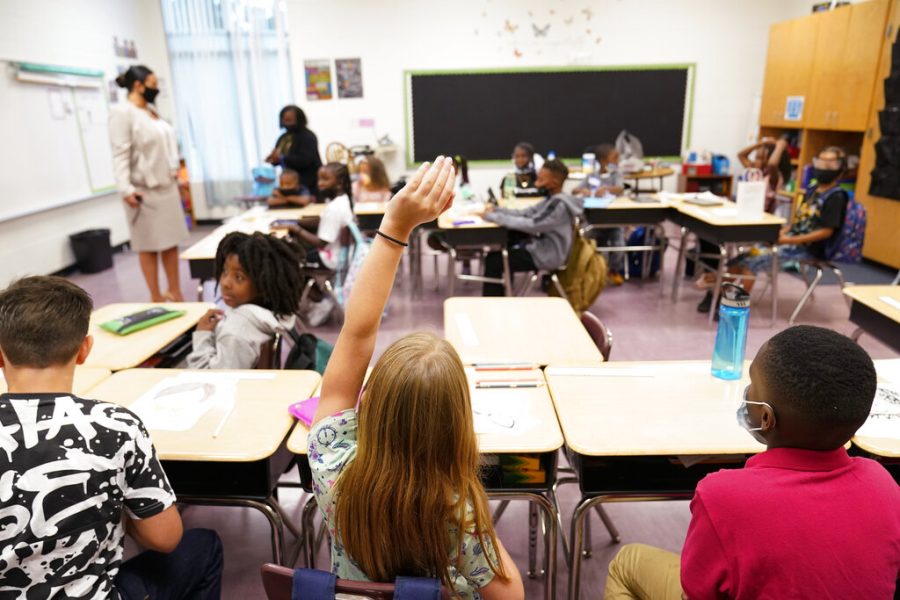Explore the Challenges Encountering Our Neighborhood: Save Temecula Schools
Explore the Challenges Encountering Our Neighborhood: Save Temecula Schools
Blog Article
How Schools Play a Crucial Duty in Shaping Future Leaders and Pioneers
Colleges are important fit future leaders and innovators via the growing of essential thinking, imagination, and collaboration. By incorporating project-based learning and interdisciplinary researches, universities test trainees to evaluate and synthesize complex info. Teachers offer as mentors, directing pupils and supporting their potential, while extracurricular tasks even more establish leadership abilities and durability. This dynamic setting not just concentrates on private staminas but likewise highlights the relevance of synergy, vital for browsing tomorrow's difficulties. Exactly how precisely do these components interplay to create a durable structure for future success?
Cultivating Crucial Believing
In today's rapidly developing world, fostering crucial believing within universities has come to be paramount. As society grapples with increasingly intricate global difficulties, the ability to assess, assess, and synthesize info is necessary. Schools play an essential function in establishing these abilities, preparing pupils to browse and deal with diverse problems with informed, reasoned choices.
To grow crucial reasoning, educators use various pedagogical approaches that urge active learning and intellectual involvement. Classroom discussions, problem-based understanding, and Socratic questioning are crucial in promoting analytical and reflective thought procedures. By testing pupils to interrogate presumptions and think about numerous perspectives, these methods guarantee a deeper understanding of topic past memorizing memorization.
Furthermore, incorporating vital assuming across the curriculum strengthens its relevance and applicability in varied contexts. Topics such as maths, science, background, and literary works each deal distinct opportunities to establish students' critical professors. For example, assessing historical occasions requires assessing sources and understanding context, while clinical query needs rigorous theory testing and evidence-based reasoning.
Eventually, instilling essential believing skills in trainees outfits them with the cognitive tools required for lifelong discovering and flexibility. It is via this fundamental skills that future leaders will be able to innovate, solve issues, and add meaningfully to society.
Motivating Creativity
Embracing creative thinking within instructional structures galvanizes students to believe beyond traditional borders and check out cutting-edge options. By incorporating artistic undertakings and creativity workouts into the educational program, colleges cultivate an atmosphere where originality and creative thought are valued. This strategy not just improves the instructional experience but additionally outfits trainees with the capability to take on real-world difficulties in novel methods.
School can foster creativity with diverse means such as project-based discovering, interdisciplinary research studies, and the consolidation of arts and modern technology. Project-based discovering, for example, encourages students to use their expertise in useful, often joint, tasks that demand creative analytical abilities. Interdisciplinary research studies enable pupils to attract connections in between various topics, consequently broadening their point of views and boosting their imaginative abilities.
In addition, providing trainees with opportunities to engage with emerging innovations, such as coding and digital layout, even more nurtures their innovative potential. These tasks motivate students to experiment, stop working, and repeat, which are vital elements of the innovative process (Save Temecula Schools). By maintaining a supportive atmosphere where trial and error is encouraged, colleges can ensure that trainees establish the self-confidence to go after cutting-edge ideas
Fundamentally, supporting imagination in academic settings is crucial for shaping future leaders and trendsetters with the ability of attending to complicated international issues with resourcefulness.
Promoting Partnership

Executing group-based discovering components and participating tasks permits students to experience the characteristics of teamwork firsthand. This not just prepares them for the collective nature of modern work environments but likewise nurtures management top qualities as they frequently have to take on roles such as task supervisors or group coordinators. Additionally, collaboration in the classroom can damage down social obstacles and advertise inclusivity, ensuring that each trainee feels valued and listened to.
Moreover, integrating innovation can better sustain collective efforts. Tools like shared interactive platforms and electronic workspaces enable students to collaborate successfully, also outside the classroom. As trainees create these collaborative abilities, they are much better geared up to tackle intricate obstacles YOURURL.com and introduce, laying the foundation for their future functions as leaders and trendsetters.
Duty of Teachers as Coaches

Mentorship entails tailored attention, where teachers try this site identify and support specific staminas and address weak points. Save Temecula Schools. Through one-on-one communications, instructors can tailor their guidance and assistance to fulfill each student's one-of-a-kind demands, fostering a sense of confidence and resilience. This tailored strategy grows a development attitude, motivating students to check out failures as opportunities for learning and growth
Moreover, educators work as function versions, showing the worths of stability, compassion, and perseverance. Their mindsets and activities provide a plan for students to replicate, instilling a sense of moral obligation and social awareness. By creating a supportive and comprehensive class atmosphere, teachers make it possible for trainees to establish social skills that are important for effective leadership.
Basically, the mentorship given by teachers lays a fundamental structure for the growth of future leaders, equipping them with the understanding, abilities, and worths required to stand out in an ever-evolving world.
Influence of Extracurricular Activities
When integrated effectively into the academic framework, after-school activities substantially boost trainee advancement and management capacity. These tasks supply trainees with opportunities to check out interests beyond the standard curriculum, fostering a well-rounded capability. Clubs, sports teams, and arts programs grow important qualities such as teamwork, time monitoring, and durability. Participation in these activities usually calls for pupils to take on responsibilities, consequently nurturing their management capacities.
Trainees involved in music, drama, or debate clubs learn to assume critically and method issues from diverse perspectives. By working together with peers from various backgrounds, students also create empathy and communication skills, crucial qualities for future leaders.
After-school activities likewise play an essential duty in scholastic efficiency. Study shows that students associated with such programs have a tendency to have greater qualities and better attendance records. These activities provide a healthy go to my site and balanced electrical outlet for tension, contributing to overall health. Therefore, institutions that prioritize a well balanced method to education, integrating durable extracurricular programs, are more probable to create trendsetters and leaders outfitted to satisfy the difficulties of the future.

Final Thought
In verdict, colleges dramatically form future leaders and trendsetters by supporting essential thinking, imagination, and partnership amongst trainees. By fostering an encouraging atmosphere that values specific toughness and team effort, colleges furnish trainees with the required abilities to navigate future difficulties and drive development.
As pupils create these joint abilities, they are better geared up to tackle intricate difficulties and introduce, laying the groundwork for their future functions as leaders and innovators.
By promoting essential reasoning and analytic abilities, instructors help trainees browse intricate difficulties, preparing them for management roles in numerous fields.
By working together with peers from different histories, trainees also establish compassion and communication skills, vital qualities for future leaders.
In verdict, institutions considerably shape future leaders and innovators by nurturing critical reasoning, creativity, and collaboration among students. By cultivating a supportive setting that values specific staminas and teamwork, schools gear up trainees with the required skills to browse future obstacles and drive development.
Report this page